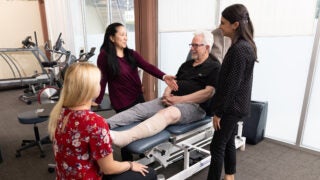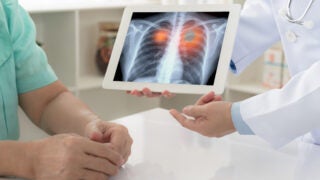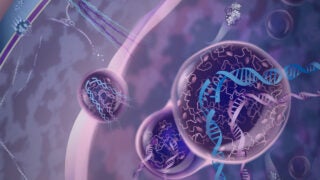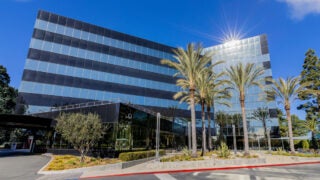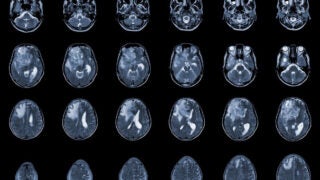A genetically engineered herpes simplex virus, when combined with immunotherapy, reduces or eliminates tumors in one-third of clinical trial patients.
Cancer
News Listing
Cancer treatments are saving and extending more lives than ever. USC practitioners are guiding patients from diagnosis to treatment to facing their post-care future by connecting them with necessary resources.
High doses of corticosteroids, prescribed to manage cancer-related symptoms or treatment side effects, are the most significant factor in why some immunotherapies don’t work.
USC-led research finds that an electric field device placed on the scalp, along with immunotherapy and chemotherapy, may help patients with glioblastoma live longer.
Research uncovers a mechanism that protects the genome by avoiding catastrophic errors when repairing breaks in tightly packed DNA, a finding with implications for cancer and aging.
The radiation oncology and imaging center is the first in Orange County to offer biology-guided radiation therapy, which sends up-to-the-minute “signals” locating cancer cells in the body.
A USC-licensed startup biomedical company and a Keck Medicine of USC neurosurgeon focused on treating brain cancer are taking their invention public. Such collaborations are an important way for researchers to bring promising treatments to patients.
A USC-led study uses artificial intelligence to analyze genetic mutations and improve cancer treatment strategies.
The treatment would be the first gene therapy for glioblastoma to use a novel, more precise delivery system that is less likely to harm non-cancerous cells.
USC researchers found an association between levels of PFAS in drinking water and the incidence of certain digestive, endocrine, respiratory, and mouth and throat cancers.


